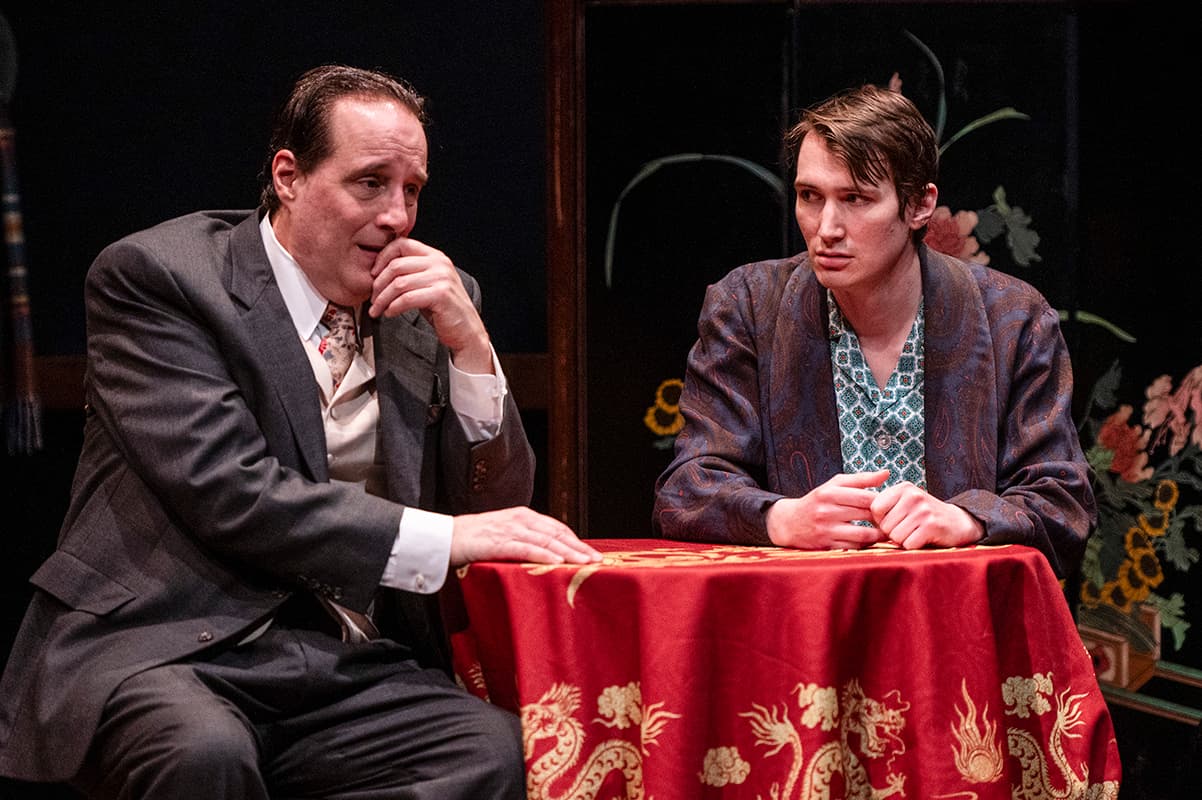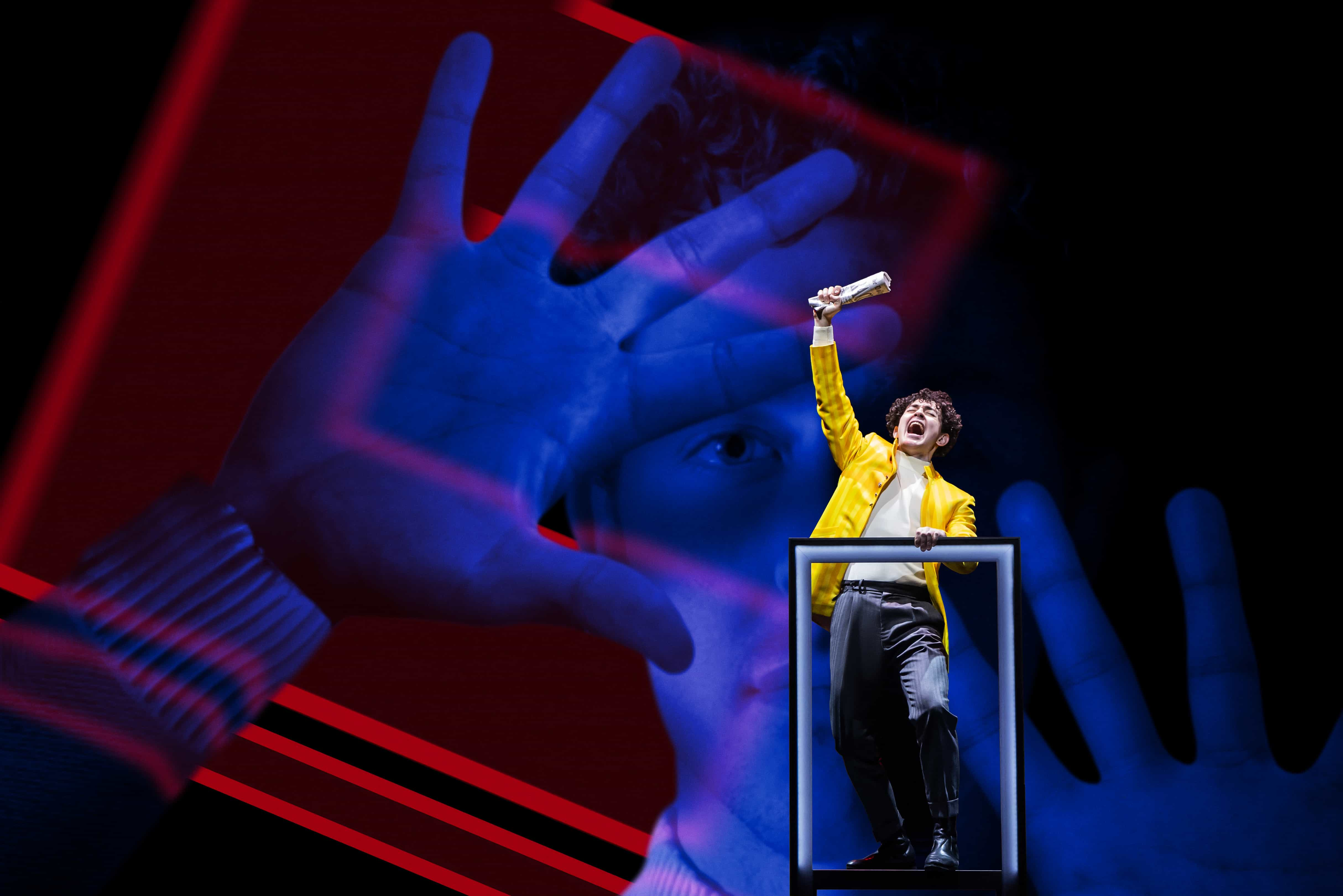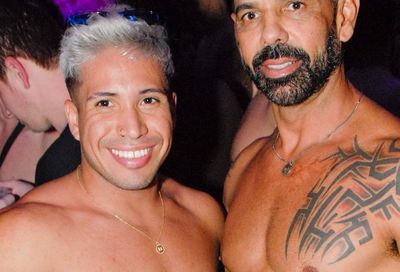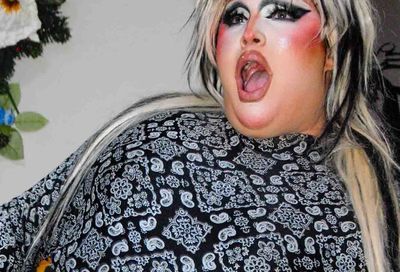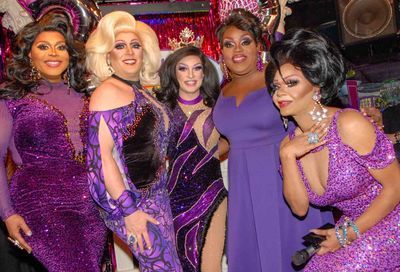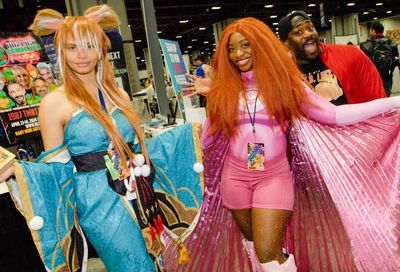Boots Over Broadway
Billy Porter has many people pumped up about his remarkable, Tony-nominated work in ''Kinky Boots''
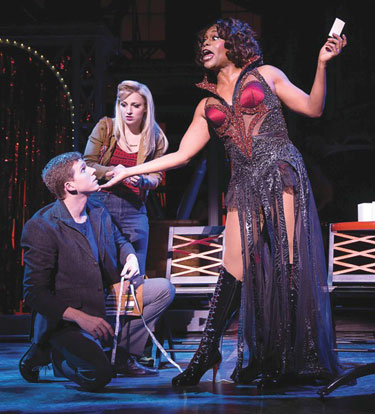
Kinky Boots
(Photo by Matthew Murphy)
MW: Is it true that you ice your feet as part of your show regimen?
PORTER: I do, I do. You’ve got to pull the blood out of them and redistribute the blood back into the rest of your body. [Laughs.]
MW: You have to go beyond just the typical performing duties of protecting your voice, though you have to do that, too.
PORTER: Vocally, I took really great efforts to create a template where nothing was strained. I would sing through songs and find the key and then I would say, ”Okay, now let’s lower that a step.” So I wasn’t always at the tip-tip-top of my range, and didn’t have to worry about that. And then regenerative sleep. I try to get at least seven to 10 hours of sleep a night. That really is the biggest key to success, doing eight shows a week.
MW: You mentioned experience wearing heels. This isn’t your first drag role, right?
PORTER: I did a film back in the ’90s called Twisted, where I played a drag queen. And I did a play where I was dressed up in sort of pseudo drag for a scene of it. But never to this magnitude, and never in this way that’s so grand and spectacular. It’s designed — the hair, the wigs, the makeup, the costume. It’s just astonishing. I have a whole team that helps Lola come to life.
MW: The Village Voice recently stirred up a little controversy with the character, quoting Harvey Fierstein calling Lola straight, all the while you’ve conceptualized playing the role as gay, right?
PORTER: For me, yes. But let me be clear that Lola’s sexuality is not the point of this play. It’s not the point at all. She could be gay, she could be straight, it could be questionable. In terms of how I approach it, as an African-American, out, gay Christian man, my version of Lola is gay. Now if you have a conversation with Harvey Fierstein, he might say something different and that’s absolutely fine as well. You have to understand that Lola’s sexuality is not the point. It’s just not. So it doesn’t actually matter.
MW: The point is just respecting yourself and what makes you different or special, as well as respecting others who are different from you.
PORTER: Yeah, learning how to love yourself. Learning how to respect yourself. Learning how to forgive yourself and forgive others. It’s a bromance between two men — an unlikely pair of friends. And one of them just happens to wear a dress.
MW: You’ve been out your entire career?
PORTER: I have. I was out when it wasn’t popular. [Laughs.] And I’ve taken all the hits that come with that decision.
MW: Obviously you’ve seen changes since you started.
PORTER: Oh absolutely. The character of Lola could not have existed 20-something years ago when I started in this business. Which is why it’s taken me all of this time to have a role that is so revolutionary inside of the [Broadway] paradigm. She’s black, and a drag queen, on Broadway. We have not seen that before. And she’s not the butt of the joke. She’s not a caricature. She’s a real, three-dimensional, fleshed-out human being. And you know, no T, no shade, but it’s not Madea. And I love Tyler Perry and I love Madea, but it’s not that version of drag.
You get to see a third of the piece where Lola is male, out of drag. And you see the inner workings and the dimensions of who this person is. So she’s not just the clown, but she’s the heart and soul of the piece. And that’s a different thing. That didn’t exist when I started. The possibility of what I’m doing right now did not exist. It was not an option.
MW: You alluded to it already, but when you started in this business, I’m sure people encouraged you to be in the closet and not be out.
PORTER: Yeah, I was in the music business. I had an album on A&M Records. I was never the type of person that was sort of screaming from the mountaintops that I was gay. I also wasn’t the type of person that was so effeminate that I couldn’t pass. But I also instinctively, early on, knew that to omit the information was also a lie. So to say nothing — for me, and that’s just for me — to say nothing and sort of let people think otherwise was also a lie and it wasn’t truthful, and I really wanted to find as much truth in my work as I possibly could.
Support Metro Weekly’s Journalism
These are challenging times for news organizations. And yet it’s crucial we stay active and provide vital resources and information to both our local readers and the world. So won’t you please take a moment and consider supporting Metro Weekly with a membership? For as little as $5 a month, you can help ensure Metro Weekly magazine and MetroWeekly.com remain free, viable resources as we provide the best, most diverse, culturally-resonant LGBTQ coverage in both the D.C. region and around the world. Memberships come with exclusive perks and discounts, your own personal digital delivery of each week’s magazine (and an archive), access to our Member's Lounge when it launches this fall, and exclusive members-only items like Metro Weekly Membership Mugs and Tote Bags! Check out all our membership levels here and please join us today!



